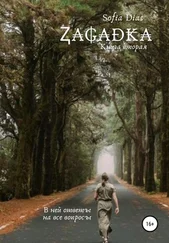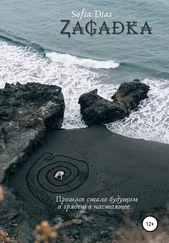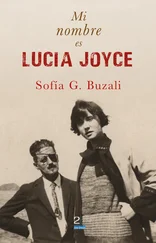The one thing I had not foreseen was that Lunre, my foreign master, would refuse the chance to return with me to the country of his birth. He shocked me when, with a small, hard smile, he shook his head and said: “Ah, Shev, that way is barred. ‘I have cast my helmet into the sea.’”
“Ravhathos the Poet,” I murmured numbly. “Retiring from the wars… secluding himself in a cottage made of mud, in the Kelevain…”
“You have been a fine student,” Lunre said. I glanced up at him. He was shadowed, leaning, framed in the archway, the bright kitchen garden behind him. A touch of light caught one earring with its blue stone, a silver eyebrow, the steady green of an eye, a shade of expression: resigned, resolute.
“I am still your student,” I said.
He laughed and made a light, uncertain gesture, opening one pallid palm in the glow that came in from the garden. “Perhaps,” he said. “I have been a student of Vandos all my life, and I believe your tchanavi tended not to release their disciples.”
His teeth flashed in a smile; but seeing my still, crestfallen look he added gently: “I will be here when you return.”
I nodded, recognizing the secret iron at my master‘s core, the adamantine vein that never yielded to my touch. I narrowed my eyes, looking into the sun, my lip between my teeth. Then I asked: “Well—what can I bring you from Bain?”
“Ah!” He drew in a sharp breath. “Ah! For me? Don’t bring me anything…”
“What?” I cried. “Nothing? No books? There were so many things you wanted!”
He smiled again, with difficulty: “There were so many things I spoke of—”
“Tchavi,” I said. “You cannot refuse a gift, something from your homeland.”
He looked away, but not before I saw his stricken expression, the anguish in his eyes, the look he wore in the grip of fever. “Nothing,” he muttered at last. “Nothing, there’s nothing I can think of—”
“It can’t be, Tchavi, there must be something. Please, what can I bring you?”
He looked at me. He wore again his grim, despairing smile, and I saw in his eyes the sadness of this island of mist and flowers. And I thought I saw, as well, a tall man walking along a windy quay and spitting the stone of an olive into the sea.
“The autumn,” he said.
Book Two
The City of Bain
The ship Ardonyi —in Olondrian, “the one who comes out of the mists”—bore me northward along the coast of Jennet, the still hours punctuated by the sound of the captain’s gong announcing meals of odorous fish stew clotted with bones. I stood at the front of the line with the other paying passengers while my steward, Sten, and our laborers waited behind, shifting their feet and snacking on the crescent-shaped rolls the sailors called “prisoners’ ears,” which were abandoned, rather than served, in a row of sacks. A great heat came from the galley next door, a rough voice singing, the clanging of metal, a creeping odor of rot and a reddish glow, while outside, on the smooth sea, which was both dark and pale in the moonlight, the Isle of Jennet floated by with its peaks of volcanic stone. We took no passengers from that tortured island of chasms and ash, where double-tongued salamanders breed among flowers shaped like pitchers, and where, according to island lore, there dwells Ineti-Kyan, the Devourer of Mouths, who runs up and down the black hills with his hair in the wind.
I had almost fought my way through the stew by the time Sten joined me with his own bowl. He set it down with the tips of his fingers, his nose creased in distaste. About us the walls vibrated with the movement of the ship, the old wood gleaming in the light of whale-oil lamps.
I nodded in greeting and spat a collection of bones into my hand. “Come,” I laughed, “it’s better than what we had at the inn.”
“At the inn there was breadfruit,” Sten replied, looking gloomily into his bowl.
“Breadfruit dulls the brain. Try this—there’s eel today.”
“Yes, Ekawi,” he said. The title, uttered in a quiet, resigned, and effortless tone, made me start: it was the way he had addressed my father. That title now was mine, along with the house, the forests, the pepper bushes, the whole monotonous landscape of my childhood. And it means nothing to me, I thought, crunchy spiny morsels of fish, my momentary unease absorbed in a rush of exultation. The sacks of pepper we’ve stuffed in the hold, the money we’ll make, the farm—to me all this weighs less than the letter fi pronounced in the sailors’ dialect…
They pronounced it thi ; they whistled their words; they sang. They hunched over other tables, tall rough men, their ruffled white shirts stained dark with sweat and tar. Some wore their hair cut short in the Bainish fashion, but others left it to fly out over their ears or knot itself down their backs. They raised their bowls to their bearded lips and threw them down again empty, and when they turned their heads their earrings flashed in the light. They were nothing like my master: they told coarse stories and wiped their mouths on their sleeves, and laughed when one of their fellows struggled against a bone in his throat. “The Quarter,” I heard them say. “You drink with the bears. Gap-toothed Iloni, the smell in her house.” In their speech ran the reed sounds of Evmeni and the salty oaths of the Kalka; they used the Kideti words for certain fruits and coastal winds, and their slang throbbed with the sibilant hum of the tongue of the Kestenyi highlands. At last they rose, one after the other, spitting shells on the floor. As they passed our table I lowered my head to my dish, my heart racing, afraid they might notice me and yet longing to be one of them, even one of the galley slaves who wore their crimes tattooed underneath their eyes.
When I looked up, Sten was watching me.
“What?”
He sighed. “It is nothing. Only—perhaps you would ask the cook if there is fennel.”
“Fennel! What for?”
“Prayer,” he replied, raising his spoon to his lips.
“Prayer.”
“The old Ekawi was accustomed to pray while at sea.”
“My father prayed.” I laughed, flicking my bowl away with a finger, and Sten’s narrow shoulders rose and fell in a barely perceptible shrug. The light of the lamp shone on the implacable parting in his hair and the small white scar that interrupted one eyebrow.
I rested my elbows on the table, smiling to put him at ease. “And where will our prayers go?”
“Back to the islands. To the nostrils of the gods.”
“My poor Sten. Do you really believe that a pinch of dried fennel burned in my cabin will keep the gods from crushing this ship if they choose?”
Again his shoulders moved slightly. He drew a slender bone from his mouth.
“Look,” I argued. “The Kavim is blowing. It blows to the north, without turning! How can the smoke move backward?”
“The wind will change.”
“But when? By that time our prayers will have disappeared, inhaled by the clouds and raining over Olondria!”
His eyes shifted nervously. He was not hotun , after all, not one of that unfortunate class who live without jut : he had jut at home, no doubt in one of the back rooms of his strong mud house, a humble figure of wood or clay, yet potent as my own. Naturally it would not do to bring jut northward to Olondria: to lose one’s jut in the sea would be the greatest of calamities. Burnt fennel was said to make the gods favorable to keeping one’s jut from harm; but it shocked me to think that my father had held any faith in such superstition. Sten, too: his iron features were softened by dejection. He looked so forlorn that I laughed in spite of myself.
Читать дальше












